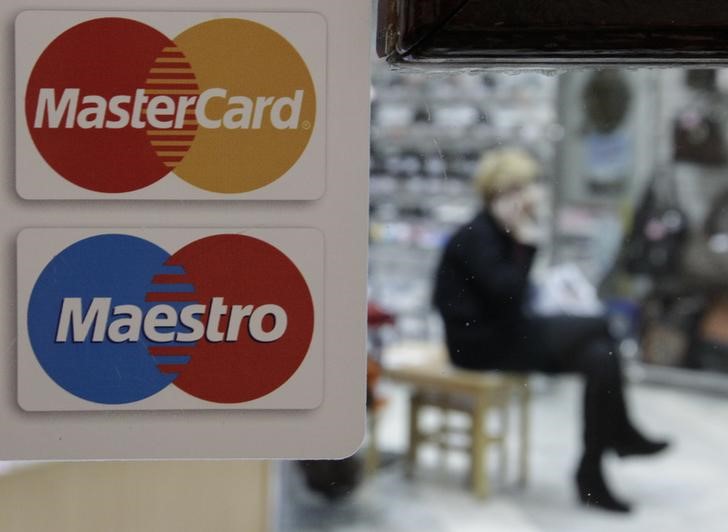By Tom Arnold
DUBAI (Reuters) - MasterCard Inc (N:MA) has doubled the number of its cards to about 100 million in the Middle East and Africa in the past three years, where it has begun setting up partnerships with governments to provide access to its payments system.
That is still a small share of MasterCard's around 2.2 billion cards in use globally. But there is plenty of room for growth in a region where about 90 percent of transactions are still done in cash, compared with an average of 85 percent globally.
"This is the fastest growing region," Michael Miebach, president, Middle East and Africa for MasterCard worldwide, told Reuters. "We continue to expect growth above the global average."
In March, the world's second biggest debit and credit card company signed an agreement with the Egyptian government to issue digital identification cards with built-in payment devices to 54 million Egyptians, enabling them to pay for government fees, mobile phone bills, shop purchases and other goods and services.
The scheme links consumers' identification cards with an existing payment platform on mobile phones.
MasterCard has a pilot of a similar plan with the government of Nigeria, which also has a low rate of "financial inclusion."
"We see in the Middle East as well as Africa a fairly high cash dominance. If you go to Nigeria it is about 94 percent cash."
MasterCard and larger rival Visa Inc (N:V) get more than 60 percent of revenues from outside the United States. Less than a third of MasterCard's come from Asia Pacific, Middle East and Africa. PayPal, the payments arm of eBay (O:EBAY), is also active in the region.
MasterCard's first-quarter results, published last month, showed that purchase volumes in Asia Pacific, Middle East and Africa rose by 15.2 percent, faster than the 11.8 percent figure for worldwide volumes.
The size of transactions in the region increased by 20.9 percent, versus a 15 percent rise globally.
Within the Middle East and Africa, Saudi Arabia and the United Arab Emirates were among the fastest growing markets, Miebach said. In the UAE, robust spending by Chinese helped to offset weakness in transactions volumes by Europeans and Russians as a result of softness in the euro and rouble against the U.S. dollar, he said.
Across the Middle East and Africa, business had been faster in debit cards than credit cards, with expansion also driven by popularity of prepaid cards, he said.
Last month, MasterCard did a deal with Premier Bank in Somalia to issue debit cards and install ATM machines in the country.
Miebach also said growth was strong in Sub-Saharan Africa, supported by buoyant economies and people switching from cash to cards.
(This story has been corrected in second paragraph to change figure to 2.2 billion from 1.4 billion)
